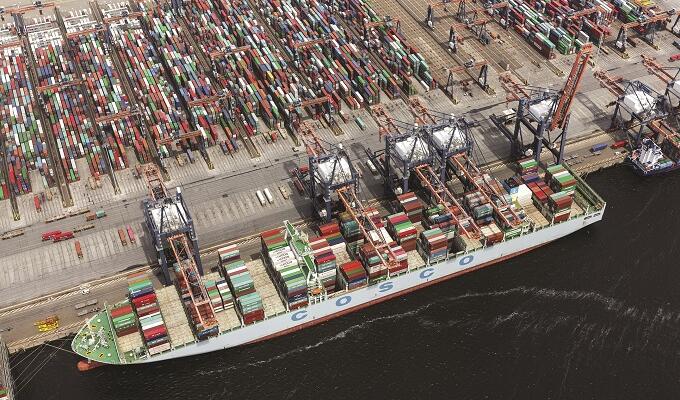

How the European Union joins trade dynamism with sustainable development
The European Union (EU) is at the vanguard of marrying the values of sustainable development with the economic engine of trade. Through the incorporation of comprehensive commitments on environmental and labour provisions in all its bilateral trade agreements the EU aims to build free and fair trading relationships. This is a reflection of EU determination to strengthen and uphold the international community’s journey that began with the Millennium Development Goals and the 2012 United Nations Conference on Sustainable Development (Rio +20) and has culminated with the United Nations 2030 Agenda on Sustainable Development, including the Sustainable Development Goals (SDGs).
Mapping across the trade and sustainable development provisions in all recent EU trade agreements to the SDGs, we can see they are mutually reinforcing. Provisions in EU trade pacts promoting fair and ethical trade, corporate social responsibility and small and medium-sized enterprises (SMEs) can contribute to gender equality under Goal 5. Provisions on the protection of labour rights directly support Goal 8 on decent work, while the provisions on environmental protection support Goal 12 pertaining to the circular economy, Goal 13 regarding climate action, Goal 14 on oceans and Goal 15 on land respectively.
This comprehensive contribution of EU trade policy to the SDGs goes far beyond the expectation in the 2030 Agenda that international trade would act as a means of implementation (Goal 17); put simply, as a tool for domestic revenue generation through which countries can increase their incomes to meet their other commitments to the SDGs. Indeed, during the 2030 Agenda negotiations the EU unsuccessfully proposed that all countries commit to including trade and sustainable development provisions in their trade agreements.
However, all of these actions have been included in the EU’s implementation plan for the 2030 Agenda and are outlined in the 2015 communication ‘Next Steps for a Sustainable European Future.’ Furthermore, in the New European Consensus on Development, adopted jointly by EU member states, the European Parliament and the European Commission in June at the European Development Days, the EU sets out its actions on how it will support partner countries to implement their commitments under the 2030 Agenda. This includes providing development assistance and aid for trade with a special focus on actions to implement the sustainable development provisions of our trade agreements.
At the same time, international trade agreements and trade policy are under an increasingly harsh spotlight, with some commentators blaming trade for increased inequality, job insecurity, environmental degradation and more. The EU, however, remains a staunch defender of trade openness as a means to boost economic growth and catalyse job creation. When coupled with strong values on social protection and environmental stewardship, trade can be an enabler of sustainable development.
Still, trade policy and trade agreements are not an end in themselves; they establish the legislative infrastructure which can facilitate international businesses to buy and sell, to source, manufacture and market the products (goods and services) that generate revenue, growth and employment.
Trade agreements establish the rules of the game. We want all players to uphold certain standards with regard to the rights of workers and the protection of the environment. These are not European standards, but those agreed internationally at the International Labour Organization and within multilateral environmental agreements.
Embedding a multilateral approach is pivotal to the EU’s ethos on trade and sustainable development. Its agreements do not seek to ensure that partners can only produce their tradable goods and services with identical conditions to those in Europe. Instead they seek to ensure that a minimum threshold, reflecting shared values, is respected and that this threshold can and should rise over time. As such they act as a springboard for increasing benefits to workers, progressively eliminating environmental degradation and mitigating the contributory factors of climate change.
Another innovative element of the EU’s trade and sustainable development policy is the inclusion of civil-society mechanisms in all its recent trade agreements. By ensuring the involvement of participants with a direct stake – be they representatives of workers, of businesses or of organizations acting in defence of the environment – such mechanisms give oversight and ownership to the very groups who can identify problems and demand solutions on trade and sustainable development related issues.
The EU seeks to embed multilateralism; to create a lasting, equitable and constructive relationship with its partners; and to involve civil society in the monitoring and implementation of its trade agreements. Combined with the binding provisions on labour protection and environmental protection the EU negotiates, these elements collectively form the basis of a coherent and developmental approach to trade and sustainable development. The work is far from over of course: delivering on sustainable development goes far beyond trade and efforts are needed at multiple levels by all stakeholders.
For the EU it is crucial to work with its partners at all levels to overcome challenges pertaining to sustainable development that inevitably arise in a trading relationship between partners. As such, the EU remains fully committed to the multilateral approach to trade and will continue to play a leading role in maximizing the benefits of trade to ensure inclusive growth and sustainable development for all.



